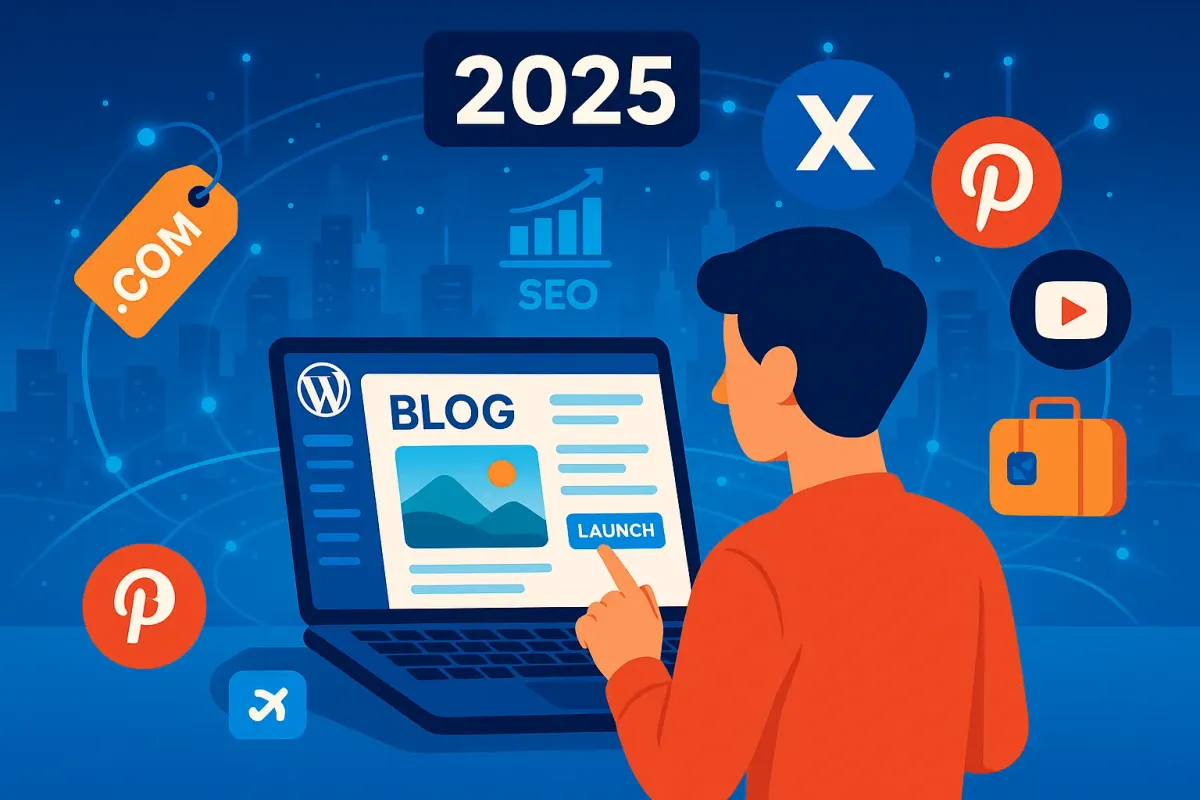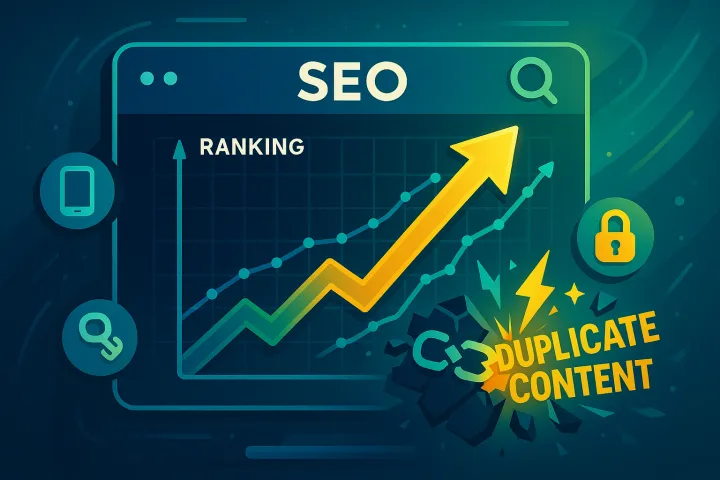How to Start a Blog in 2025: A Concise Guide
Blogging remains a powerful way to share your ideas, creativity, or expertise in 2025.

Blogging remains a powerful way to share your ideas, creativity, or expertise in 2025. This guide outlines the essential steps to launch a successful blog, optimized for visibility and growth in a competitive digital landscape.
Steps to Start Your Blog
- Select a Blogging Platform
Choose a platform that suits your needs. Popular options in 2025 include:- WordPress.org (self-hosted, flexible, highly recommended)
- Wix (user-friendly, drag-and-drop)
- Medium (great for writers, built-in audience)
- Ghost (modern, focused on publishing)
- Hashnode (developer-friendly, community-driven)
WordPress.org is often preferred for its customization and scalability.
- Choose a Domain Name
Your domain name is your blog’s identity. Tips: - Set Up Hosting
Hosting impacts your blog’s speed and reliability. Top providers in 2025:- SiteGround (fast, great support)
- Bluehost (WordPress-recommended, affordable)
- WP Engine (premium, managed WordPress hosting)
Choose a plan based on expected traffic and budget.
- Install a CMS
Install a content management system (CMS) like WordPress.org for flexibility. Follow your hosting provider’s one-click installation or use platforms like WordPress.com for a simpler setup. - Design Your Blog
A clean, responsive design enhances user experience. Tips:- Choose a lightweight theme from repositories like ThemeForest or WordPress’s free themes.
- Match the theme to your niche (e.g., minimalist for lifestyle, bold for tech).
- Use tools like Elementor for custom designs.
- Install Essential Plugins
Enhance functionality with plugins (for WordPress): - Find Your Niche
Focus on a specific topic to stand out:- Choose something you’re passionate about and knowledgeable in.
- Research demand using tools like Google Trends or Ahrefs.
- Avoid oversaturated niches like generic lifestyle; consider sub-niches (e.g., sustainable travel).
- Write Your First Blog Post
Create engaging, high-quality content:
When applicable, you have some additional tools:
- You can analyze individual X user profiles, X posts and their links.
Republican and Democratic parties, showing a polarized landscape.
Key Steps to Start a Blog in 2025
- Choose a Blogging Platform: Popular platforms include WordPress.org, Wix, Medium, Ghost, and Hashnode. WordPress.org is highly customizable and widely used.
- Pick a Domain Name: Select a short, memorable, and niche-relevant domain (e.g., via Namecheap or GoDaddy).
- Secure Hosting: Opt for reliable hosts like SiteGround, Bluehost, or WP Engine for speed and support.
- Install a CMS: Use WordPress.org for flexibility or simpler platforms like WordPress.com.
- Design Your Blog: Choose a responsive, niche-appropriate theme from ThemeForest or free WordPress themes, customizable with Elementor.
- Add Plugins: Install Yoast SEO or Rank Math for SEO, WP Rocket for speed, and Smush for image optimization.
- Find Your Niche: Focus on a passion-driven topic with audience demand, using tools like Google Trends or Ahrefs.
- Write Your First Post: Craft a 1,500+ word post in the first person, using royalty-free images from Unsplash or Pexels, optimized for SEO.
- Drive Traffic: Promote on Google, Pinterest, YouTube, X, and other social platforms to build an audience.
- Monetize: Use affiliate programs (e.g., Amazon Associates), sponsored posts, or ads via Google AdSense.
Support My work so that I can create add free content.
Join the Pyroadmaps Family
PyRoadMaps | WhatsApp Channel
PyRoadMaps WhatsApp Channel. Hey there, I’m Pushpender, Professionally, an educator and entrepreneur.! Dive into my personal blog, where I unveil my latest projects, share personal experiences, and explore the art & science. 0 followers

Stay ahead of marketing trends by joining the Pyroadmaps community. Connect with innovators, access exclusive insights, and elevate your strategies.





Comments ()